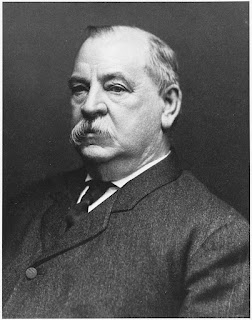Labor Day became a federal holiday in 1894, during the presidency of the only chief executive who served two non-consecutive terms. (Have I tempted you to look up this piece of presidential trivia?) This holiday emerged from an overheating crucible containing worker exploitation and worker unrest. All of this let to labor reform. Change so often requires disruption, discomfort, protest and even violence. Clearly, the antebellum conflict between the northern and southern states, for example, was not to be resolved peacefully.
There are still, of course, unfair labor practices and worker exploitation. Are Uber drivers employees or independent contractors? Did Starbucks retaliate against employees who wanted to organize? But to be fair, we must acknowledge that great progress has been made that is
still ongoing. Oftentimes, when a
particular struggle has not yet achieved its full mission, folks point out the
distance remaining rather than the distance traveled. Acknowledging progress should be readily and
enthusiastically expressed even if the destination has not yet been reached. 'But we still have a long way to go' is often give as a default statement. And for many of these struggles, complete success is aspirational.
Labor Day honors the working men and women of this country,
those who do the blocking and tackling to keep this nation moving downfield. Without their contributions, this nation
would be but a shell and a shadow of what we are today. I salute you all.


Comments
Post a Comment